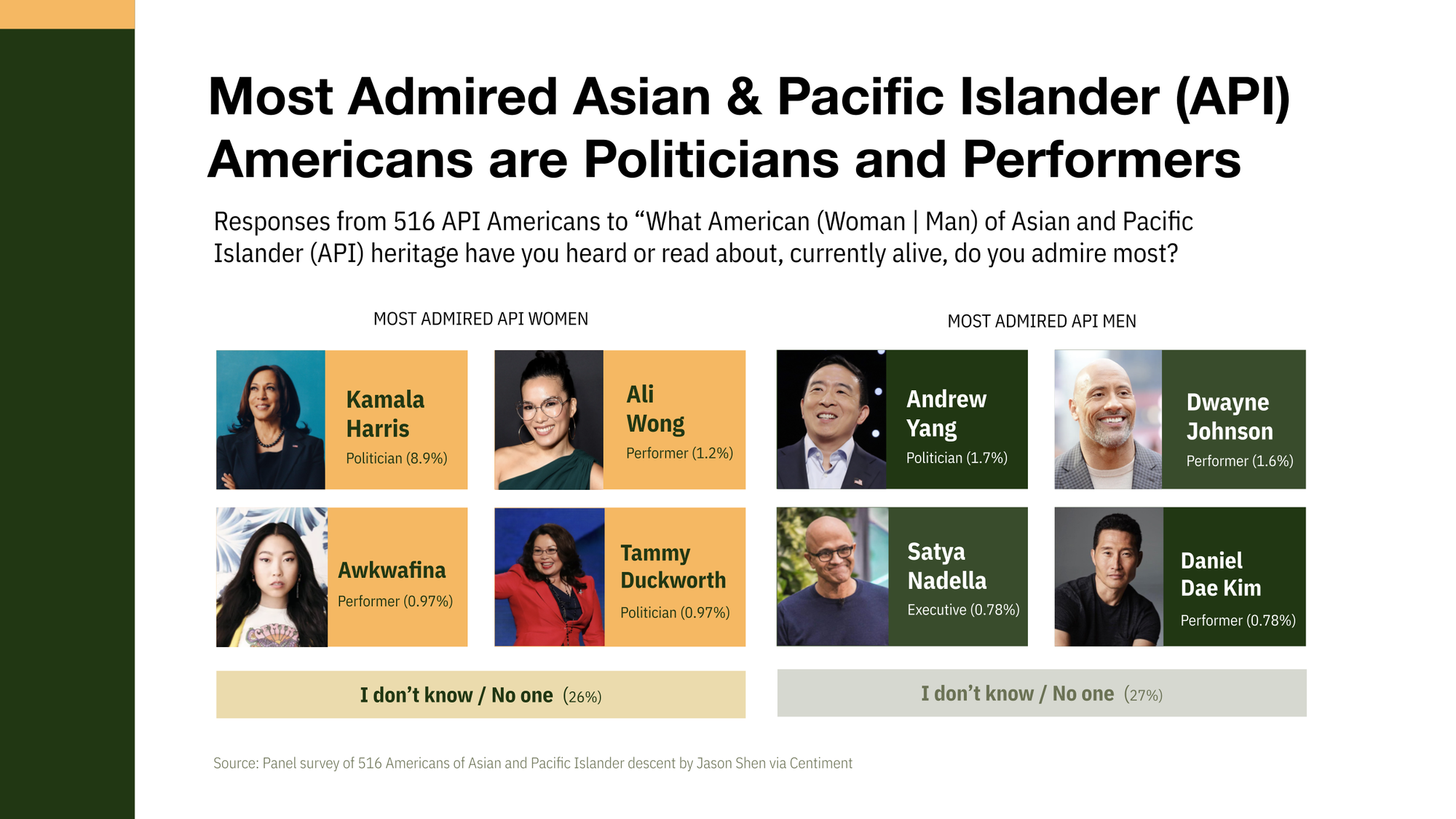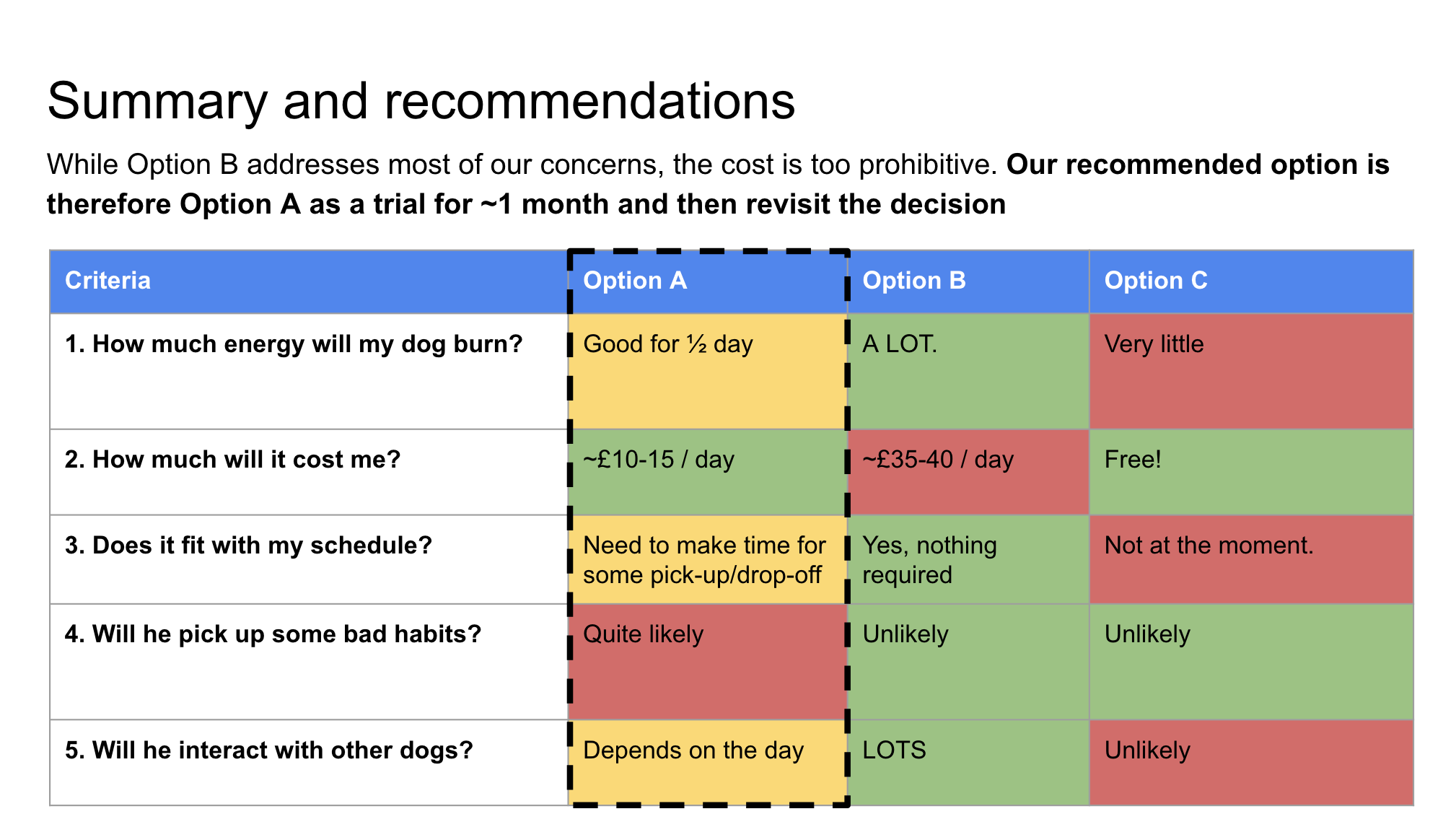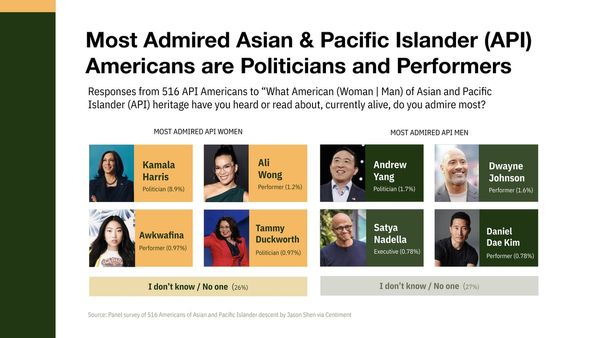Oh hello there,
This is the 52th edition of Cultivating Resilience, a weekly newsletter of illustrated brain food about how we build, adapt, and lead in times of change.
Like what you see? Why not bring someone to the party?
🖼 Most Admired Asian Pacific Islanders (According to Asian Pacific Islanders)
As you may know, it’s National Asian American, Native Hawaiian, Pacific Islander Heritage Month. In a year that’s been full of grief and rage, it’s a chance for our community to gather, celebrate, and remember who we are. I recently commissioned a national survey of 516 API Americans using a demographically distributed panel via Centiment.
My friend Judy and I are still crunching the numbers but here’s one fun finding: the most admired American men and women of Asian and Pacific Islander heritage.

Political figures Kamala Harris and Andrew Yang topped the list (with Senator Tammy Duckworth in the mix). Performers like Ali Wong, Awkwafina, Dwayne “The Rock” Johnson and Daniel Dae Kim in close pursuit. The lone business leader on the list was Microsoft CEO Satya Nadella.
About 26% of respondents didn’t have anyone they most admired, which is rather high but still better than the 42% of all Americans who can’t name a single prominent Asian American, with Jackie Chan being the most named individual1.
🧠 We Should Copy More
When we’re facing adversity, we often realize we need to change the way we do things. But that’s never easy. Luckily, Katie Milkman, a professor at UPenn, has a new book called How to Change: The Science of Getting from Where You Are to Where You Want to Be
One of her big ideas is about copying others. She writes about a woman who was a college RA and lived with five fellow RA’s-in-training who were vegetarian. She had always been intrigued but never sure she could do it.
When training was over, Kassie realized she could easily emulate the strategies that had worked so well for the vegetarians in her RA cohort: eating tasty omelets for breakfast, soups and risottos for lunch, and so on. She decided to try a meatless life for a week. That week then turned into a month, which turned into four years. Although she didn’t have a name for it, Kassie had used a strategy I use myself when I want to master a new skill: “copy and paste.” She watched peers who had managed to achieve a goal she wanted to achieve and then deliberately imitated their methods.
When you see someone who’s done what you want to do, they might be different from you in terms of talent, temperament, or background, but they probably also have adopted some habits or behaviors that could help you. And it’s worth learning from them.
My frequent collaborator, Angela Duckworth, and I often take the same approach. I’ve copied and pasted her strategy of handling work calls while she walks to the office, and she’s emulated my practice of drafting emails from preexisting templates.
At Facebook, one of the things I’ve learned from other PM’s is the “traffic light” approach to structuring decisions. You gather a series of options, rate them on various dimensions, and explain your recommended option. I found a very generic example online but this can work for any kind of important decision.

It’s been extremely helpful especially as an established pattern that other people are used to.
Angela and I suspected that many people never wake up to the opportunity to deliberately emulate their peers. After all, while Kassie was thrown together with some vegetarians for a week and it changed her life, it had never previously occurred to her to go looking for them.
So of course they went and did a bunch of experimental research on it!
More than one thousand participants hoping to boost their exercise regimens were randomly assigned to one of three groups: a control group in which they were simply encouraged to plan how they would increase their activity, an experimental group in which they made plans but were also encouraged to use our “copy and paste” strategy, or a second experimental group in which they made plans and were given a workout hack to copy that was obtained by someone else (like “for every hour that you exercise, allow yourself fifteen minutes on social media”).
In this study, they had 3 conditions:
- Control: make a plan to exercise more
- Test 1: make a plan but also try copying someone else
- Test 2: make a plan and here’s a workout hack to try
When we dug into the data, we discovered that seeking out exercise hacks to copy and paste led people to find tips that best fit their own lifestyles. What’s more, taking a more active approach to information gathering increased the time participants spent with their role models, increasing their exposure to good habits.
It seems the key isn’t just getting the advice but also connecting with people who gave you the advice. I think this makes sense - consider how often people will cite some super generic advice but reference that their parent or a mentor gave it to them. The advice isn’t special, but the person who gave it to them, and thus motivated them to actually apply it, was.
When we’re unsure of ourselves, a powerful way the people around us can help boost our capacity and confidence is by showing us what’s possible. Often, in fact, we’re more influenced by observation than by advice. By watching her vegetarian peers create meals in the dining hall and order in restaurants, Kassie was able to pick up techniques that made vegetarianism work for her.
👉 A weird remix on TikTok
This was a really fun remix that I saw on Tiktok and was then reshared on Twitter (and now is being shared on an email newsletter. Meta). The joke is that this guy normally does very short and serious sounding news reports on Tiktok but decided to introduce his girlfriend. And a lot of people were picked up on the awkwardness of the clip and ran with it.
TikTok has a “duet” feature that allows you to essentially add your video to an existing one. Often it’s used to react to someone else’s video or sing a song together (hence the feature’s name) but in this case was used in a totally different way. One of the glorious things about consumer technology is how people end up doing the most wacky unexpected things with it. I’m hoping Marcus and Brittany weren’t subject to anything truly abusive in the process (you never know).
Welp that’s what I got for this week. Catch you soon!
-Jason
By the way Jackie Chan and Mahatma Gandhi were actually 3rd and 4th in terms of sheer votes on the men’s list of my survey, but I excluded them because they don’t fit the definition per the question.

